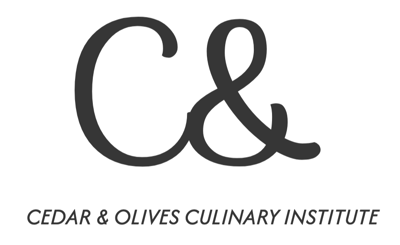Embracing Sustainability in the Kitchen: The Mediterranean Approach
1/22/20252 min read


Introduction to Mediterranean Cooking
Mediterranean cuisine is not merely a collection of recipes; it embodies a lifestyle rooted in sustainability and harmony with nature. This culinary tradition champions the use of seasonal, local ingredients, thereby nurturing both the body and the environment. At Cedar & Olives, we teach our students the importance of eco-friendly practices within the kitchen, providing them with the skills to make mindful culinary choices that promote sustainability.
Utilizing Organic Produce
The foundation of Mediterranean cooking lies in its emphasis on organic produce. When students at Cedar & Olives learn to select vegetables and fruits that are organically grown, they are making an eco-conscious decision that significantly reduces exposure to synthetic pesticides and fertilizers. Choosing organic not only supports local farms and sustainable agriculture but also contributes to healthier meals. Incorporating organic produce into one’s diet is an easy yet impactful way to embrace sustainability in the kitchen.
Reducing Food Waste Through Mindful Cooking
One of the core lessons imparted at Cedar & Olives involves reducing food waste. Mediterranean cuisine revels in its versatility, encouraging cooks to use every part of the ingredient. For instance, vegetable scraps can be transformed into flavorful broths, while stale bread can be repurposed into a delicious panzanella salad. Such practices not only limit waste but also inspire creativity in the kitchen. Readers seeking to adopt sustainability in their cooking can start by planning meals effectively, which ultimately leads to less spoilage and a more conscientious approach to meal preparation.
Making Eco-Conscious Decisions
Sustainable cooking goes beyond just the ingredients used; it also encompasses responsible decision-making during shopping. Teaching students how to identify seasonal products is central to our curriculum at Cedar & Olives. Seasonal produce typically requires fewer resources and travels shorter distances, which reduces carbon footprints. Furthermore, opting for bulk buying reduces packaging waste. Simple actions like bringing reusable bags to the market or purchasing from local farmers’ markets can dramatically affect one’s ecological impact.
Actionable Tips for Sustainable Cooking
Readers interested in promoting sustainability in their kitchens can adopt these actionable tips. First, create a seasonal meal planner, featuring local ingredients to inspire creativity. Second, practice efficient meal prep to ensure nothing goes to waste. Third, compost organic scraps, contributing to a healthier ecosystem. Lastly, share meals with family and friends to foster community and ensure that food does not go uneaten. Cherishing every meal enhances the appreciation for food and encourages a sustainable lifestyle.
Mediterranean cooking offers myriad opportunities to embrace sustainability in the kitchen. By using organic produce, reducing food waste, and making eco-conscious decisions, we can all contribute to a healthier planet. At Cedar & Olives, we are committed to teaching and practicing these essential values, nurturing a generation of cooks who respect and care for their environment while enjoying delightful meals.
